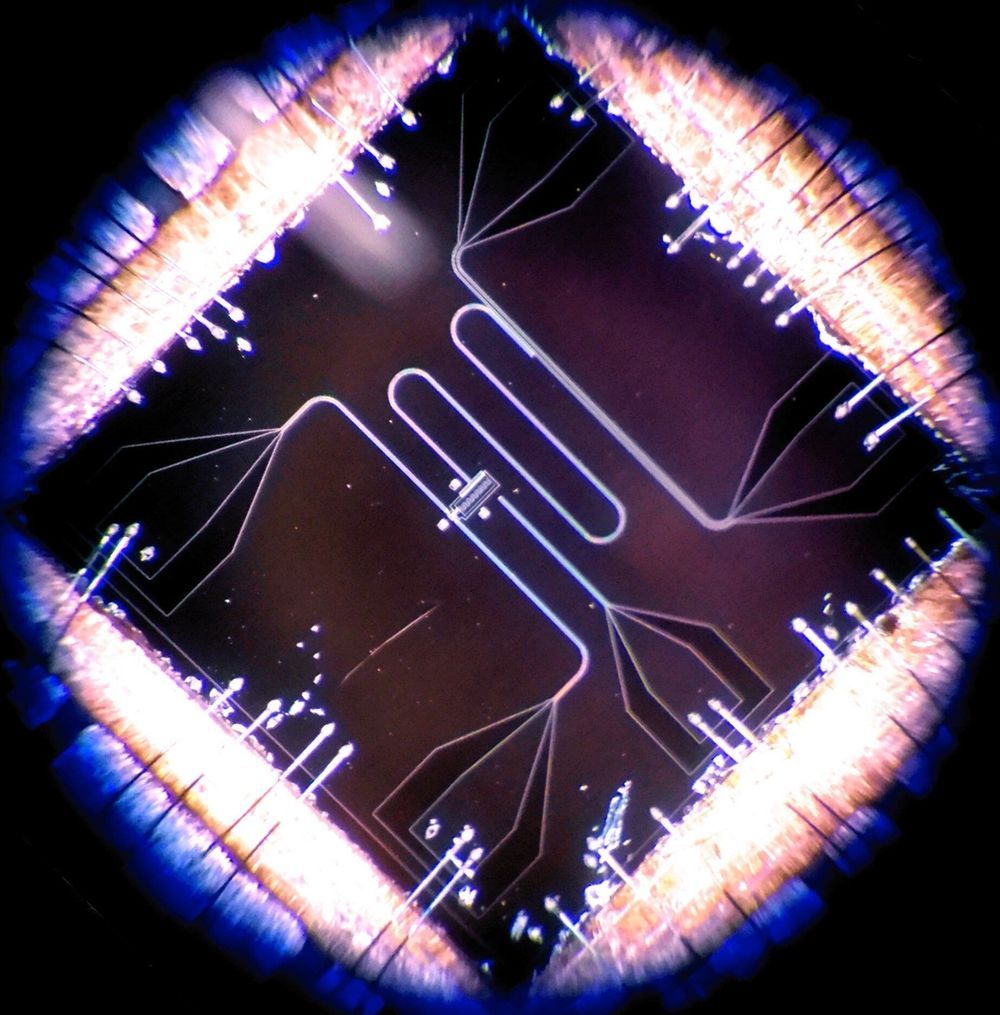Quantum physics sets the laws that dominate the universe at a small scale. The ability to harness quantum phenomena could lead to machines like quantum computers, which are predicted to perform certain calculations much faster than conventional computers. One major problem with building quantum processors is that the tracking and controlling quantum systems in real time is a difficult task because quantum systems are overwhelmingly fragile: Manipulating these systems carelessly introduces significant errors in the final result. New work by a team at Aalto could lead to precise quantum computers.
The researchers report controlling quantum phenomena in a custom-designed electrical circuit called a transmon. Chilling a transmon chip to within a few thousandths of a degree above absolute zero induces a quantum state, and the chip starts to behave like an artificial atom. One of the quantum features that interests researchers is that the energy of the transmon can only take specific values, called energy levels. The energy levels are like steps on a ladder: A person climbing the ladder must occupy a step, and can’t hover somewhere between two steps. Likewise, the transmon energy can only occupy the set values of the energy levels. Shining microwaves on the circuit induces the transmon to absorb the energy and climb up the rungs of the ladder.
In work published 8 February in the journal Science Advances, the group from Aalto University led by Docent Sorin Paraoanu, senior university lecturer in the Department of Applied Physics, has made the transmon jump more than one energy level in a single go. Previously, this has been possible only by very gentle and slow adjustments of the microwave signals that control the device. In the new work, an additional microwave control signal shaped in a very specific way allows a fast, precise change of the energy level. Dr. Antti Vepsäläinen, the lead author, says, “We have a saying in Finland: ‘hiljaa hyvää tulee’ (slowly does it). But we managed to show that by continuously correcting the state of the system, we can drive this process more rapidly and at high fidelity.”









Comments are closed.